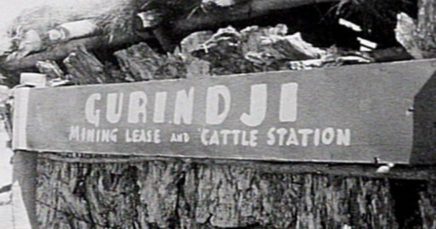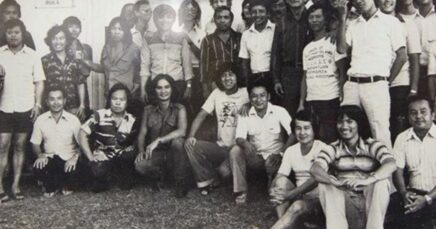Facts don’t matter when it comes to attacking the union movement. We are accused, by those who fear us, of all sorts of terrible things. At bottom though, the most offensive, and most untruthful, of all the lies told about us is that we are divisive.
We are not division. We are its opposite. We are union. Our most defining feature is that we bring working people together. We join with each other. We literally unite.
But those who fear us like to paint us as a divisive force in society.
Those who fear us paint us this way precisely because they are, by definition, divisive. And because they know we are not. This is why they fear us.
They are divisive because their very existence depends on society being divided into haves and have-nots. They are divisive because their power, which comes from their highly concentrated ownership of big capital, only thrives when the rest of us are disempowered. And we can only be disempowered when we are divided.
They try to separate us from each other by encouraging us to look at each other as if we have nothing in common. We are encouraged, for example, to embrace and practise the warped ideal of inequality to distract us from the structural inequality they impose on our lives. They try to infect us with the viruses of racism and sexism. They would like us to look down on each other when one of us earns less than the other, or because someone is living with a disability or when a worker is unemployed or engaged in the unpaid work of caring. They would love us to see ourselves as “middle class” if we’ve done okay. They want nothing more than for us to be divided from each other, and even for some of us to feel a greater affinity with them!
They don’t just try to divide us. They also try to divide social reality. They want us to treat the injustices that happen as if they were a set of random, isolated, unrelated incidents. They want to divert our attention from the causes of inequality and insecurity.
And this is another reason why they fear us. Not just because we stand together and join forces, but because we also join the dots and we look at, and call out, the connections between the many forms of injustice around us. Because we are neither division nor diversion. Because we are union.
When we talk to other workers about secure jobs, we need to be able to join some of the dots on the causes of job insecurity as well as its broader impact on the community.
The causes are straightforward. But it’s usually the bleeding obvious that gets clouded over by the lies of those who fear us.
Job insecurity is caused by a deliberate set of decisions taken by government. As they accumulate over time, these decisions deepen the devastating impact of insecure jobs on our lives and our livelihoods.
Firstly, when governments water down the existing legislative provisions to prevent job insecurity, or even go out of their way to construct new provisions, they give free reign to employers to convert standard employment into insecure employment, whether by casualisation, sham contracting, gig work or other means of lowering our wages, cutting our conditions, and even cutting us off from each other. To put it bluntly, they do it because they can! Our job is to make sure they cannot.
Secondly, governments help create an environment for low-paid, insecure work by keeping unemployment payments well below the poverty line and making life as miserable as possible for unemployed workers. On the one hand, these workers are treated so cruelly that they are expected to accept the most insecure of jobs because they know they cannot count on the social security system to offer them security. On the other hand, those who have jobs, faced with the prospect of a punitive and impoverishing unemployment benefit, are made to feel terrified of losing their job, even when it is insecure.
Thirdly, governments do all they can to undermine workers’ collective bargaining power by attacking and restricting the activity of unions.
But it’s not just union members who are opposed to the normalisation of insecure work.
The social impacts of job insecurity are enormous.
Workers are never just workers. We are members of a community. Some of us are parents. Some of us are carers for ageing parents or other family members. We are consumers. As well as being union members we are members of sporting organisations, faith communities, clubs, and other civil society organisations. Some of us are studying or training. Or we might be supporting family members who are students. We are renters or mortgagers. We are friends. Some of us live with chronic health conditions. Some of us live with a disability. We are from all cultural backgrounds, all genders, all sexualities. We are creators. We love making things, especially for those we love and for our communities, from delicious meals to intricate gardens, from visual arts to music, from poetry to pottery, from parties to picnics, from crocheting blankets to fixing up old cars. We are never just workers. We are humans. We do not live in a social vacuum. We are members of society. We are connected to so many people through everything we do.
So, when our jobs are insecure, everything in our lives is affected. And when our lives are affected, our families are affected, entire communities are affected, local economies are affected. When our lives as workers are made insecure, the nation is affected. We have seen this reality in sharp relief during the pandemic. The broader community can see how insecure jobs are a threat, not only to worker safety, but to community safety.
The short-term profit that companies gain by lowering what they see as the cost of labour translates into long-term trauma for people and places.
Insecure work means housing stress. If we have little idea of what our income is going to be from week to week it becomes impossible to budget, impossible to know if we are going to be able to make our rental or mortgage payments on time. So, we are subjected to the constant stress of not knowing if we are going to be at risk of homelessness.
Financial stress means going without other essentials too: food, clothing, health care, education, transport, utilities. It might mean that we cannot afford the costs of connecting with people who are important to us. Perhaps we think twice before inviting friends over for a BBQ or accepting an invitation to meet a friend for a coffee or a meal.
The financial stress and insecurity that comes from insecure work means not being able to afford the cost of a child’s school excursion or a simple birthday cake. It means withdrawing from sporting or cultural activities that are really important for our physical and mental health.
Job insecurity means heightened physical and social isolation. Job insecurity means housing insecurity. Job insecurity means social insecurity.
The Morrison government loves to talk about Australia’s security. But Australia cannot be secure when one in four workers is in insecure work. Australia cannot be secure when the working class is expected to accept insecure work as the new normal. Which is why we, as the union movement, as the organised working class, will not accept insecurity as any kind of normal, and why we believe in, and are willing to fight for, a not-to-distant future where we know we can count on secure jobs.
Dr John Falzon will be delivering some of our Secure Jobs Campaign Training sessions! Find out more and register here >
Dr John Falzon is Senior Fellow, Inequality and Social Justice at Per Capita. He is the author of The language of the unheard (2012) and a collection of poems, Communists like us (2017). He was national CEO of the St Vincent de Paul Society from 2006 to 2018. He is a member of the Australian Services Union



